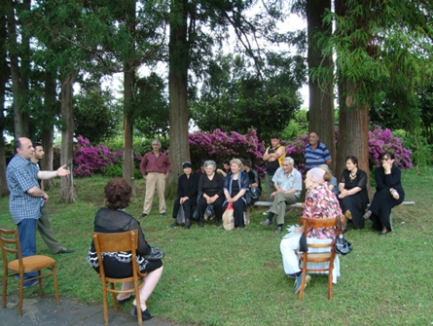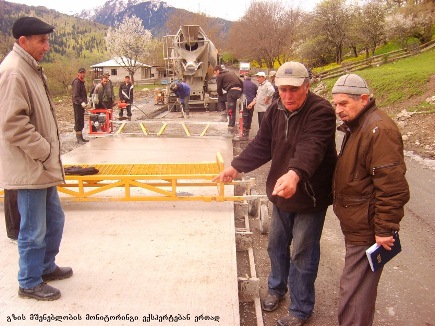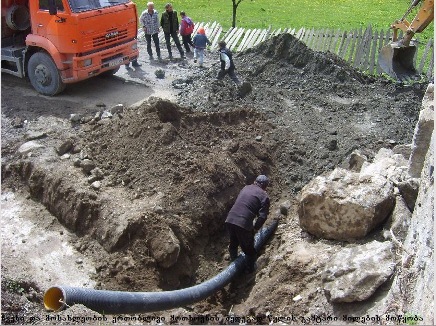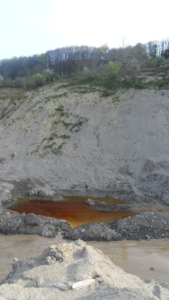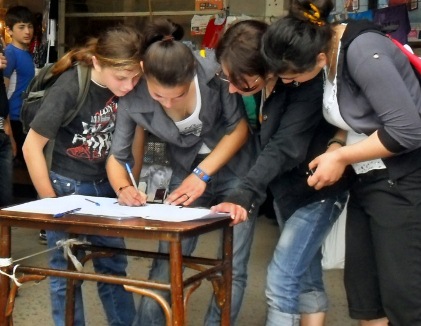According to the World Health Organization (WHO), about 3 in 1,000 babies are born with a hearing impairment, making it the world’s most common birth defect. A new education law in Georgia provides for more inclusive education for hearing impaired children, but a lack of equipment and medical services makes it difficult to fully implement this law in the regions outside of Tbilisi.
To address the problem, the Batumi-based organization Step Forward conduct-ed a comprehensive advocacy campaign to improve medical and educational services for children with hearing impairments.
Step Forward conducted and publicized a quantitative survey about the main healthcare and social barriers children with hearing problems face, trained 15 parents of hearing-impaired children in advocacy to help them protect their children’s rights, and held working group meetings with local government officials, NGOs, and parents to plan a course of action.
Step Forward’s evidence-based approach and their specific requests were key to forming a successful partnership with government officials. “We informed them, presented research, held several meetings, and afterwards the Ministers of Health and Education in Adjara and also Batumi City Hall agreed to work together with our organization regarding the problem,” said Executive Director Manana Inaishvili.

სმენადაქვეითებული ბავშვები თანატოლებთან ერთად მღერიან „სტეფ-ფორვარდის“ ადვოკატირების ვიდეოში./Children with hearing impairments sing with their peers in a film Step Forward produced and broadcast as part of its advocacy campaign.
Step Forward also raised awareness about the needs of children with hearing impairments by publishing and distributing 3,000 copies of an information book-let and producing an advocacy film that was broadcast on a local TV channel.
As a result of Step Forward’s efforts, the Ministers of Health and Education in Adjara agreed to help design early diagnostics, treatment, and education pro-grams for children with hearing impairments. Step Forward and regional government officials are currently designing these programs.
EWMI G-PAC funded Step Forward’s efforts with a Citizens’ Advocacy Grant, and provided the organization with on-the-job consultations through its Training Program.
EWMI G-PAC awarded Step Forward another CAG in June of 2012 based on its previous success. Step Forward will now work with the Adjaran government to further develop the strategic plan for improving services for children with hearing impairments and to monitor the implementation of this plan.





